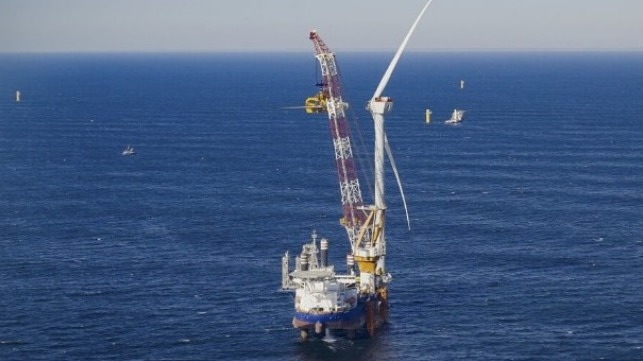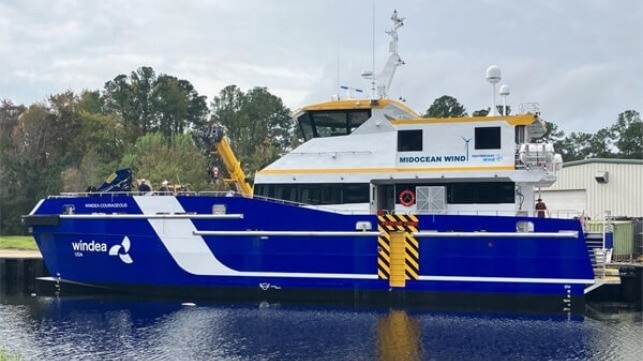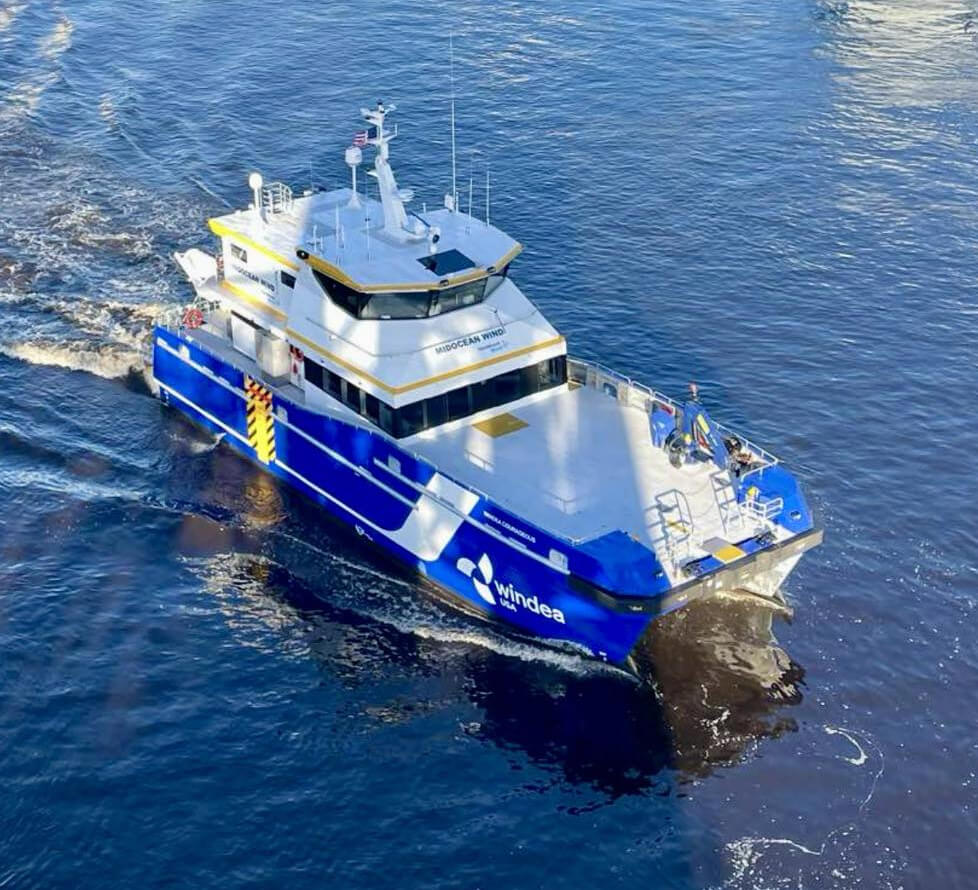Eversource Expects $1.4-$1.6B Charge as It Negotiates Sale of US Wind Farms

Eversource Energy which operates New England’s largest energy delivery system reports it is continuing with its efforts to exit its investments in the emerging U.S. offshore energy sector. Last fall the company sold some assets to its joint venture partner Ørsted and now it reports it is negotiating the sale of its interests in the wind farms. However, the changing market value of the projects due to rising construction costs will lead the company to take a $1.4 to $1.6 billion impairment charge.
The partnership has faced challenges as it works to develop some of the first large-scale offshore wind energy projects in the United States. Eversource and Ørsted are joint venture partners on the South Fork Wind project, a 130 MW wind farm located off Long Island, New York that in December became the first commercial-scale wind farm in the U.S. to generate power. That wind farm is expected to complete construction this year, while the JV is also working on Revolution Wind, a 704 MW project that would supply power to Connecticut and Rhode Island, and Sunrise Wind, a 924 MW project proposed for a location east of Long Island and south of Rhode Island.
Eversource reports it is in negotiations with a selected buyer which it describes as “a leading global private infrastructure investor.” Terms have not been agreed for a deal in which the investor would acquire the company’s share in the three wind farms. The buyer would require regulatory approval and have to reach a partnership deal with Ørsted. In addition, Eversource notes that the scope of the transaction would also be subject to the developments in the Sunrise Wind rebid process, which remains in discussion with Ørsted at this time.
The process to divest its investments in the offshore wind sector began last year when Eversource agreed to sell its rights to a lease area to Ørsted. Despite its own questions about the economic viability of portions of the U.S. offshore wind sector, Ørsted also acquired port facilities and maintenance locations in Connecticut, Rhode Island, and New York and the charter for the first U.S.-built service operation vessel under construction in Louisiana.
“Offshore wind projects continue to experience major supply chain disruption and inflationary challenges in the early stage of this growing industry in the U.S.,” said Joe Nolan, Chairman, President, and CEO of Eversource discussing the company’s strategy. He called the planned impairment charges “an unfortunate reflection of the current market conditions.”
As it pursues the negotiations, Eversource reports it has also updated project construction forecasts to reflect additional expenditures for construction as well as scheduling-related pressures. They cited challenges that included the availability and increased cost of installation vessels as well as supply chain cost increases related to foundation fabrication. These elements are contributing to an $800 to $900 million impairment charge for Eversource across the three wind farms.
There is also uncertainty for the Sunrise Wind project that created an additional $600 to $700 million in impairment charges for Eversource. They report they remain in discussion with Ørsted to determine the strategy for the project. New York State regulators in October 2023 denied a petition for the project to amend its power agreements to cover increased costs and inflation. New York however expedited a new solicitation and Sunrise Wind was one of the projects that has the opportunity to cancel its existing power agreement and rebid in the new solicitation. Eversource says they are still working to determine if they will rebid Sunrise Wind and at what price, noting if they are successful, they would then have 90 days to negotiate new power agreements at a revised price.
Nolan explains that during the fourth quarter of 2023, Eversource identified certain impacts that will require further adjustment to the carrying value of its offshore wind investments for the three projects. Those negative impacts he said required Eversource to evaluate its offshore wind business investments for an other-than-temporary impairment.
“Eversource remains focused on advancing the efforts to decarbonize the energy sector and accelerate electrification with much-needed investments in transmission and other clean energy infrastructure through our regulated utilities,” concluded Nolan.
U.S. Built CTV Delivered by St. Johns Ship Building for Vineyard Wind

The first of three new crew transfer vessels being built to support the Vineyard Wind 1 wind farm off Massachusetts has been delivered as another example of the opportunities for U.S. shipbuilders coming for the developing offshore wind sector. Built by St. Johns Ship Building in Florida, the vessel is also part of the yard’s expansion into aluminum ship construction.
The 98-foot (30-meter) long CTV began construction in 2022 ordered by WINDEA CTV, a newly launched partnership of Hornblower Wind and MidOcean Wind to support the offshore wind sector. The three vessels which use an Incat Crowther design will be operating on a long-term charter for Vineyard Wind 1, the project being developed by Avangrid Renewables and Copenhagen Infrastructure Partners which recently delivered first power.
The vessels are built of aluminum. Each can transport a total of 30 people, including 24 technicians. The well-proven design of Incat has in addition been adapted to be future-ready. The vessels are labeled “hybrid-ready” meaning they have been designed for a possible future conversion to electric propulsion.
The first vessel, WINDEA Courageous has arrived at the new wind port facility in New Bedford, Massachusetts which will be used for the maintenance operations of Vineyard Wind 1. Construction is currently underway on the wind farm and is expected to be completed this year. The vessel is now available to support the construction project and will later be joined by two sister ships.

WINDEA Courageous was recently delivered to the operations base in New Bedford, Massachusetts (St. Johns)
The project also marks a key point for St. Johns which was acquired in 2022 in a deal with the Libra Group, a privately-owned business group owned by the Logothetis family. They formed Americraft Marine Group to support and strengthen the U.S. shipbuilding industry to meet the perceived need for Jones Act-compliant vessels. The company has invested in developing the construction capabilities at St. Johns including through multiple modifications of the facility and the acquisition of new production equipment.
“The WINDEA Courageous is a statement vessel for St Johns Ship Building and marks the first measurable accomplishment in what has been a two-year effort to convert the facility,” said Ed Sheets, executive vice president and director of business strategy for Americraft Marine Group, the parent company of St Johns Ship Building. He points out that the CTV marks the expansion of the yard from a history in building primarily steel vessels to constructing advanced design, high-speed, aluminum vessels.
In addition to the three vessels for WINDEA, St. Johns also is working on an order for CTVs for Atlantic Wind Transfer. Construction on the first two vessels in an order that could see a total of six vessels built began in September 2022. AWT ordered two Chartwell 24 aluminum catamaran CTVs from St. Johns with an option for four additional vessels. They will be used to carry personnel to and from wind turbines off the northeastern U.S. coast. The vessels were designed by UK-based Chartwell Marine and reported to be a fuel-efficient design that will comply with EPA Tier 4 emissions regulations.
St. John is located in Palatka, Florida near Jacksonville. It has a long history of building crew vessels, ferries, tugs, deck and tank barges, landing craft, and general cargo vessels.
No comments:
Post a Comment